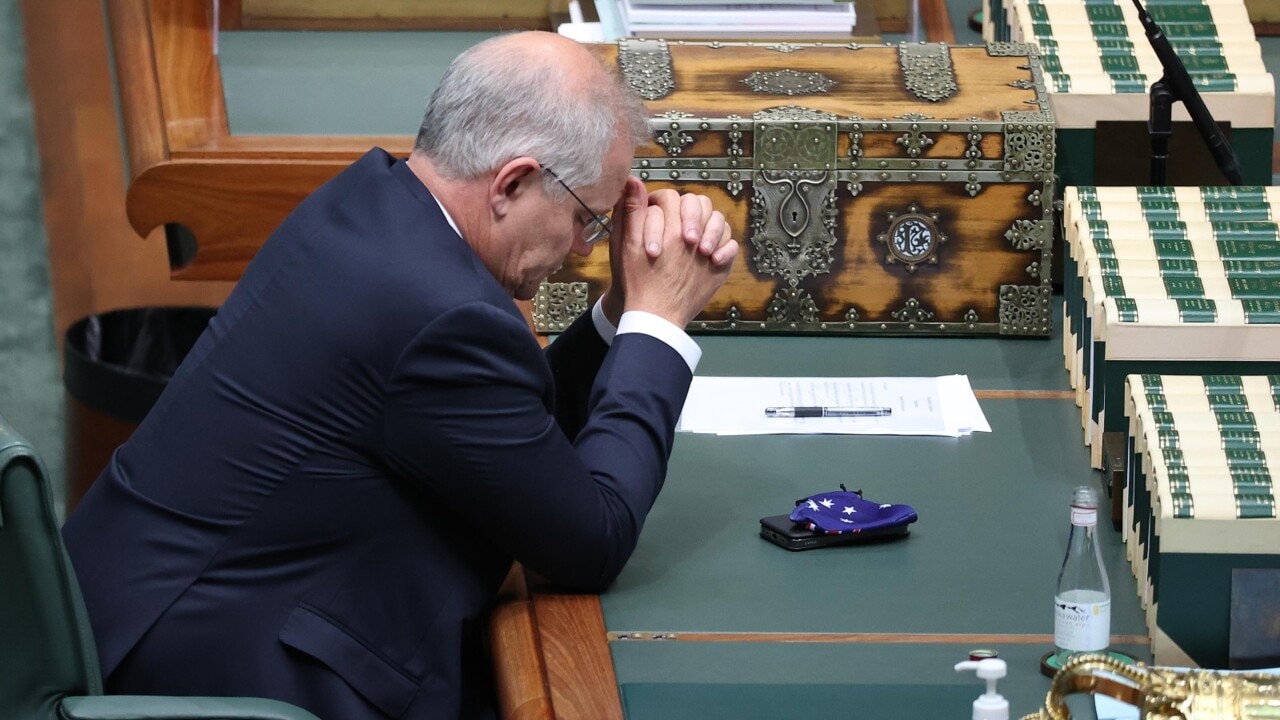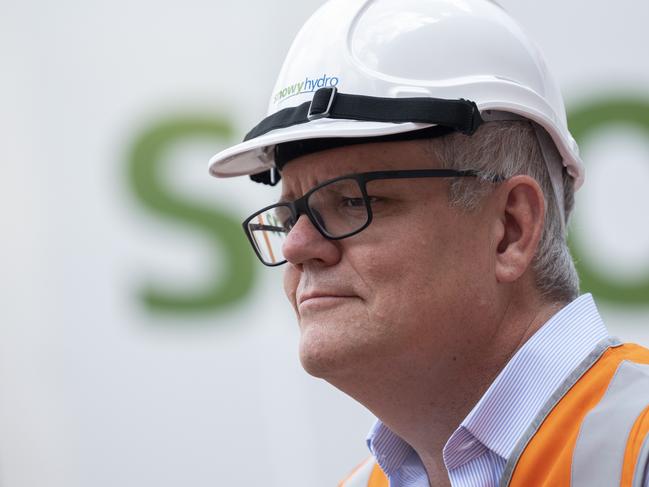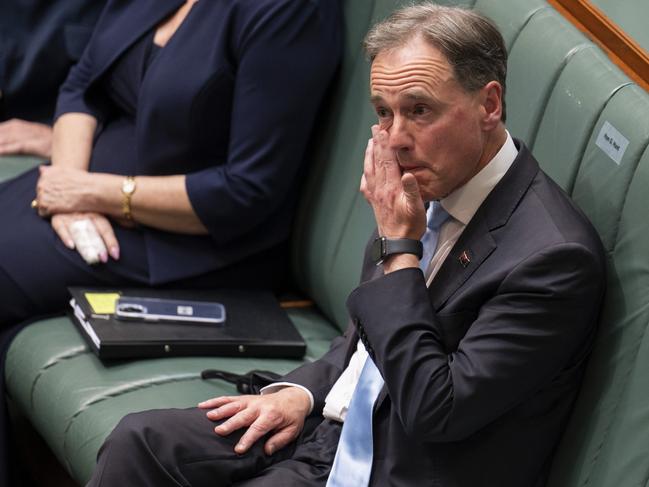Peta Credlin: The Coalition has much work to do if it wants to be re-elected
Scott Morrison’s parliamentary year ended in turmoil and if the Coalition doesn’t sort itself out over the summer break Labor will walk into office undeservedly, writes Peta Credlin.

Opinion
Don't miss out on the headlines from Opinion. Followed categories will be added to My News.
With who should know better making spectacles of themselves, the parliamentary year hasn’t ended well for anyone. But for a government that needs to win seats to hold power, it’s hit the Coalition hardest of all.
The well-regarded health minister announced his impending retirement. The former Attorney-General announced that he, too, was leaving parliament. And the education minister was forced to step aside because of new allegations about an old misdemeanour.
As well, two important bills, on religious freedom and on electoral integrity were not proceeded with because of internal problems. And seven members and senators crossed the floor because their personal convictions clashed with those of the government.
It’s not exactly auspicious for next year’s election, but before installing Labor as favourites and Anthony Albanese as the putative next PM, it’s important to remember the electorate doesn’t pay much attention to parliamentary theatre and – when it’s time to vote – people always want to know who can best be trusted with their family’s security and prosperity.

Despite the shambolic final sitting fortnight, the Morrison government has two fundamental strengths – first, the electorate’s sense that the economy is invariably in better shape under the Coalition; and second, Peter Dutton’s determined handling of defence at a time of heightened anxiety about the peril of China.
That said, with the polls bad and likely to get worse, there’s much to be done if Australia is not to be saddled with a weak Labor-Green government just when we most need economic responsibility and strategic strength.
In the short term, the Prime Minister’s key immediate task is to rein-in the MPs whose personal frolics are creating the impression of a government in disarray.
Whether it’s conservatives worried about state vaccine mandates or progressives anxious about religious schools, the basic problem is that, right now, it’s a government that’s responding to others’ agendas rather than setting its own.
So far, the government’s best “positive” is the AUKUS submarine deal which Labor says it supports but which senior front benchers keep undermining, either by siding with the French on the PM’s veracity or by (falsely) suggesting that it might undermine nuclear non-proliferation.
Even so, it would help the government’s credibility if it could acquire a second-hand nuclear submarine pre-election. It’s hard to understand why a government that’s embraced nuclear power at sea wouldn’t also adopt it on land; especially as that would not only give us a more credible path to “net zero” emissions but would also split Labor.

Seeking a fourth term, with no seats to spare and with an unfavourable redistribution, voters need a reason to vote for the government rather than simply against the Opposition, especially as Labor has learnt the lessons of the previous election and is not making Bill Shorten’s class and climate war mistakes (or at least not telling us before the election).
After a disappointing first term, John Howard saved his government by being bold on tax reform (1998). He then won a third term (2001) on national security and a fourth (2004) with a negative campaign against an L-plate Labor leader; but even Howard couldn’t win a fifth against Kevin07, who sold himself as an economic conservative, Howard-lite leader when he was anything but.
It will be hard for Scott Morrison to win a second consecutive election on the basis that “Labor would be worse”; hence the need for a positive agenda of his own to give his MPs something to fight for – as well as a more credible basis for then contrasting his policy with Labor’s.
Under different circumstances, Labor’s 43 per cent emission cut by 2030 might have been an easy target; except the Business Council of Australia, which in 2019 called a 45 per cent target “economy-wrecking”, has given Labor “cover” by now demanding a 45 to 50 per cent target.
And Labor’s claim that its emissions target will actually create jobs is scarcely less plausible than the government’s equally optimistic-assumption-driven modelling.

Labor’s use of the “safeguards” mechanism to reduce emissions intensity is indeed a “carbon tax by stealth”; but on its own, this charge is unlikely to cut through because the mechanism is already there under this government.
One way for the government to expose a risk-averse Opposition would be to highlight Labor’s “real agenda”, especially if it’s forced into minority government with the Greens. The Greens support 100 per cent renewable energy, much tougher restrictions on farming, stopping coal exports, and the legalisation of illicit drugs.
Because Labor can’t win elections without a disciplined flow of Green preferences, and with their leader Adam Bandt now referring to himself as a shadow minister, it wouldn’t be unreasonable for the government to highlight the Greens’ policies as Labor’s real wishlist; and to draw a parallel between Albanese and US President Joe Biden who campaigned as a moderate but is running the most left-wing administration in generations (and one of the most unpopular and poorly performing).
Conservative voters will be hoping that, over the summer break, the Morrison government sorts itself out and relearns how to play offence, and not just defence; because no opposition deserves to walk into office. But unless the Coalition gets its act together, that’s precisely what will happen.





